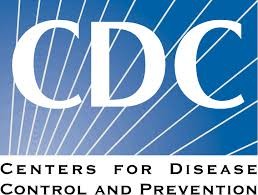ATLANTA — The Centers for Disease Control on Monday released new guidance on protocols relating to COVID-19 and is no longer recommending testing or quarantining of asymptomatic people who were in close contact with others.
The CDC did note that it was new guidance on the appropriate use of testing for SARS-CoV-2 (COVID-19) and did not specifically address anything else.
A key update, however, mentions groups of 10 or more who are not wearing masks or social distancing. In those instances, the CDC is now saying immediate testing and/or quarantining is not necessary if you are not showing symptoms. The CDC now suggests to self-monitor and to seek testing only if you develop symptoms.
Georgia High School Association Executive Director Dr. Robin Hines said the new CDC guidelines were one of several things that had been taken into consideration. He and the State Medical Advisory Committee are set to meet again this week. The football season is scheduled to begin for most of the state's high schools on Sept. 4.
"We (the GHSA office) have looked at all guidelines, executive orders, etc. and created our guidelines," Hines said Tuesday in an email to AccessWDUN Sports. "Our recommendation is that the local school district, with consultation from the local DPH, make the determination in regard to spectator seating. The GHSA does not have anything to do with mandated testing."
Gainesville Schools Superintendent Dr. Jeremy Williams echoed Hines.
"Our plans have been written in a way that these changes do not impact us one way or the other," Williams stated in an email response.
Below are the actual guidelines from the CDC website:
Considerations for COVID-19 Diagnostic (Molecular or Antigen) Testing:
- If you have been in close contact (within 6 feet) of a person with a COVID-19 infection for at least 15 minutes but do not have symptoms:
- You do not necessarily need a test unless you are a vulnerable individual or your health care provider or State or local public health officials recommend you take one.
- A negative test does not mean you will not develop an infection from the close contact or contract an infection at a later time.
- You should monitor yourself for symptoms. If you develop symptoms, you should evaluate yourself under the considerations set forth above.
- You should strictly adhere to CDC mitigation protocols, especially if you are interacting with a vulnerable individual. You should adhere to CDC guidelines to protect vulnerable individuals with whom you live
- If you do not have COVID-19 symptoms and have not been in close contact with someone known to have a COVID-19 infection:
- You do not need a test.
- A negative test does not mean you will not contract an infection at a later time.
- If you decide to be tested, you should self-isolate at home until your test results are known, and then adhere to your health care provider’s advice. This does not apply to routine screening or surveillance testing at work, school, or similar situations.
- If you are in a high COVID-19 transmission area and have attended a public or private gathering of more than 10 people (without widespread mask wearing or physical distancing):
- You do not necessarily need a test unless you are a vulnerable individual or your health care provider or State or local public health officials recommend you take one.
- A negative test does not mean you will not develop an infection from the gathering or contract an infection at a later time.
- You should monitor yourself for symptoms. If you develop symptoms, you should evaluate yourself under the considerations set forth above.
- You should strictly adhere to CDC mitigation protocols, especially if you are interacting with a vulnerable individual. You should adhere to CDC guidelines to protect vulnerable individuals with whom you live.
- If you are tested, you should self-isolate at home until your test results are known, and then adhere to your health care provider’s advice.










